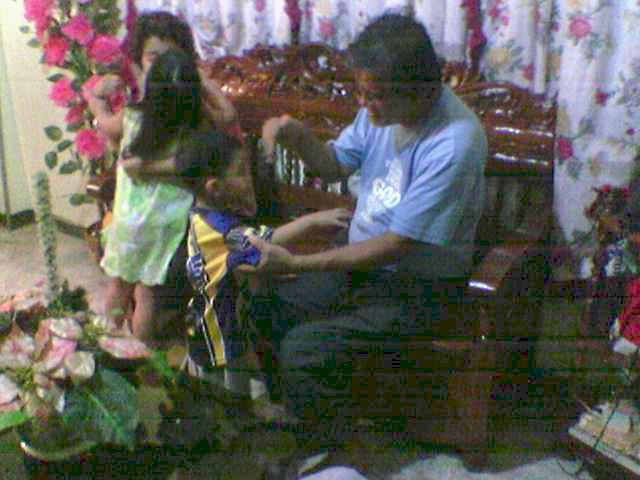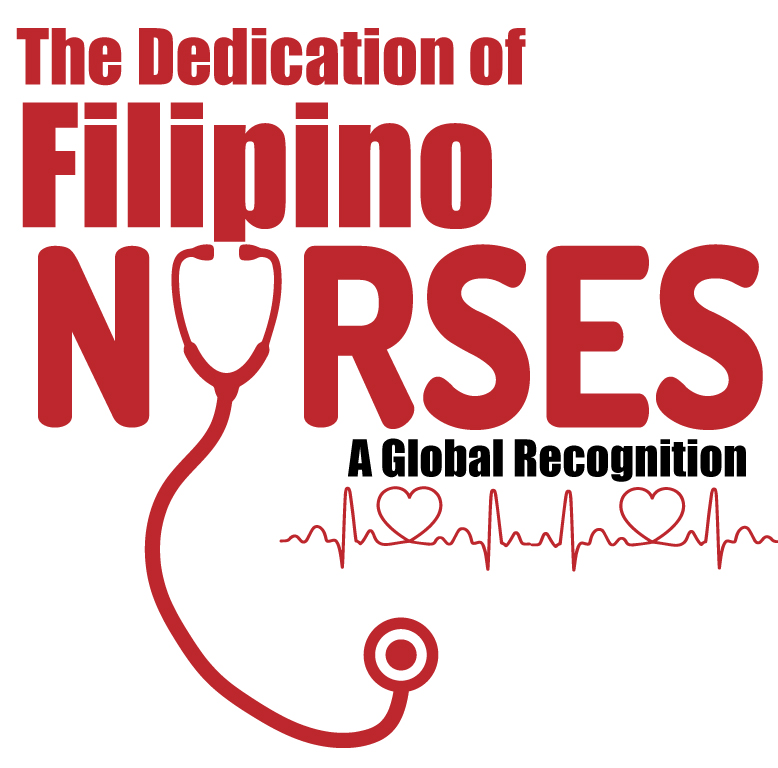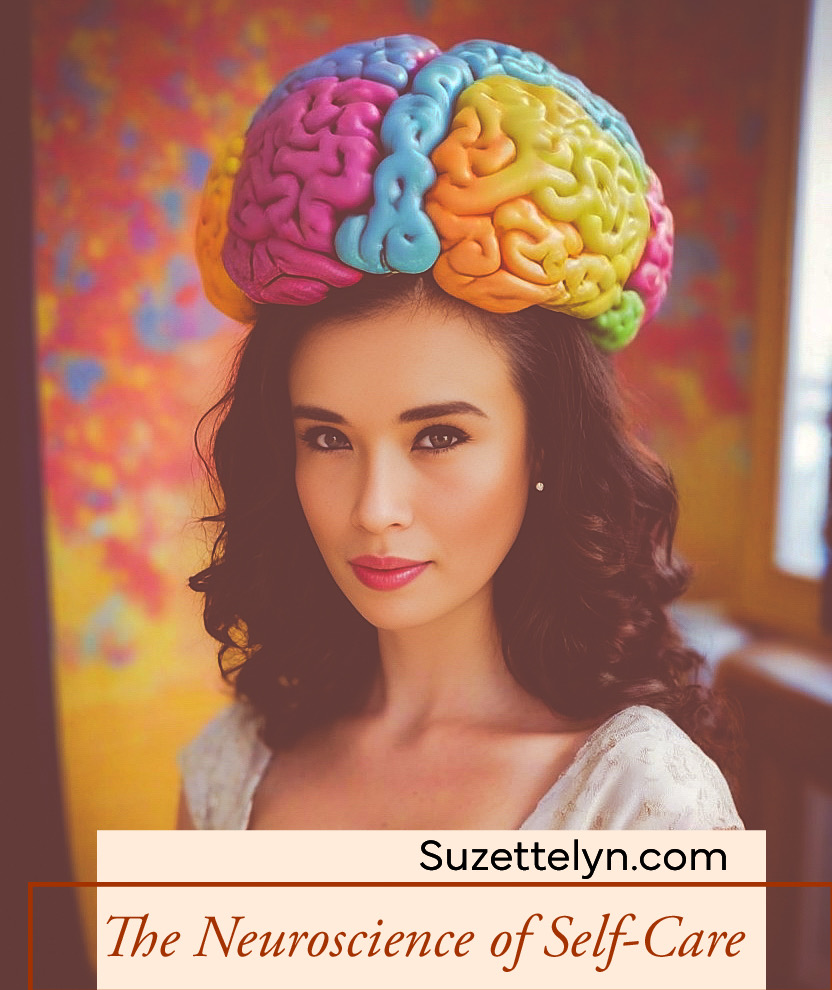
I witnessed my father dedicate his entire life to our family. He was the epitome of selflessness, prioritizing our needs and well-being over his own desires. The only indulgence I ever saw him allow himself was a piece of chocolate tucked away in his pocket—his small, cherished escape. He never experienced even the simplest pleasures. He never visited Manila, the capital of the Philippines, nor spent a night in a hotel enjoying fine dining.

For over 20 years, he wore the same pair of pants, never buying new ones or even new shoes. He never had pocket money for himself; every penny he earned went towards the family. He never bought McDonald’s when he was craving it. This humble act of devotion left a lasting impression on me, shaping my understanding of what it means to care for others, and I gradually learned it from a young age.
Childhood Responsibilities
From a young age, I learned the value of love and care for my parents. I remember waking up in the middle of the night at just four years old to make milk for my baby brother. This early sense of responsibility stayed with me, as I continued to help out in any way I could.
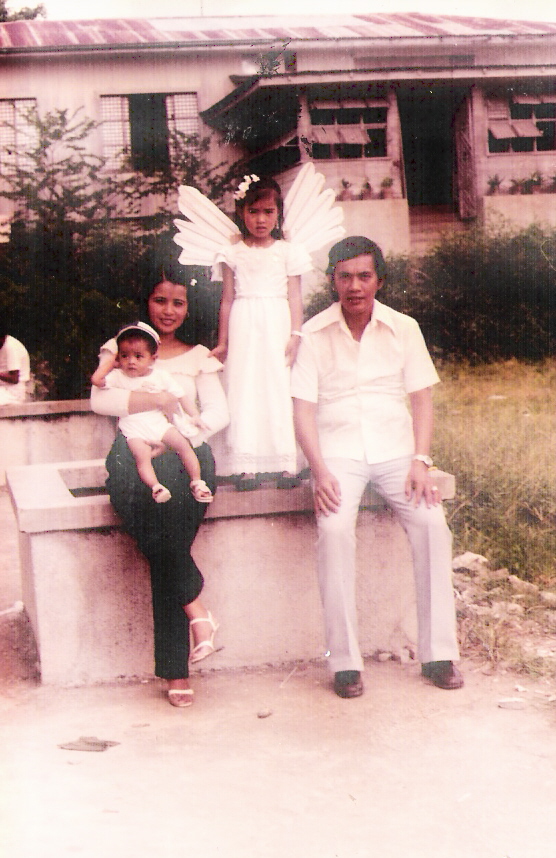
I was immersed in our family business, helping my parents as much as I could. I was just nine years old, taking charge of our store while my parents attended church. My playmate Millie and I pretended to be adults, selling furniture and managing the store. It was a game to us, but it was also a glimpse into the relentless hard work and worries about the future that my parents faced daily.
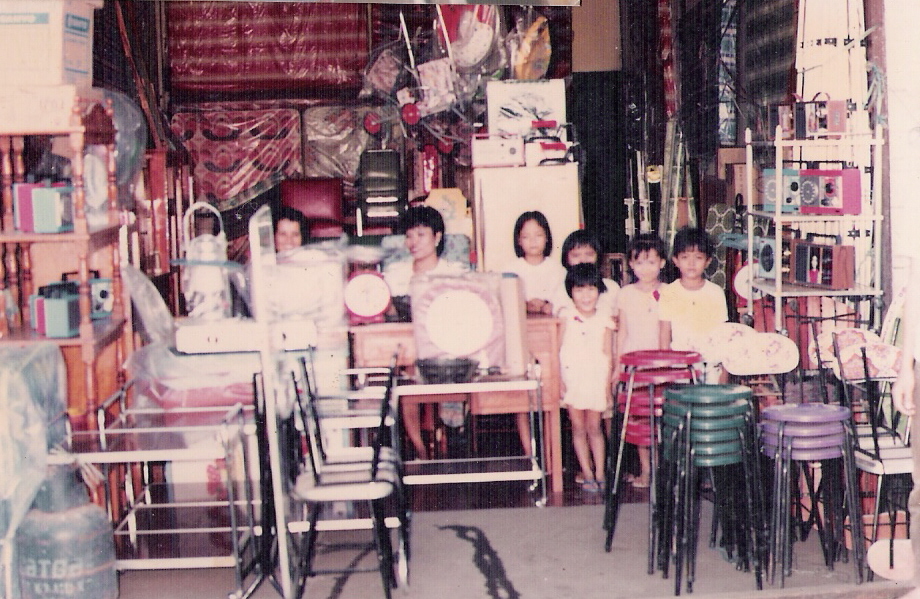
As I got older, I took on more responsibilities. When I was 11 years old, a storm hit our town, causing a sudden flood. As the water began to enter our house, I knew I had to act quickly to save some of our belongings and ensure my siblings’ safety. The first thing I saved was our black and white television, a cherished item in our home. After securing the television, I turned my attention to my little sister. I grabbed her bathtub and, in a moment of childlike ingenuity, made it into a boat. I placed her in the tub and played that the bathtub was a ship and my sister was sailing to the USA. When my dad came home and saw me, he asked, “What are you doing?” This experience highlighted the deep-seated sense of responsibility I had developed from a young age, and I enjoyed it so much.
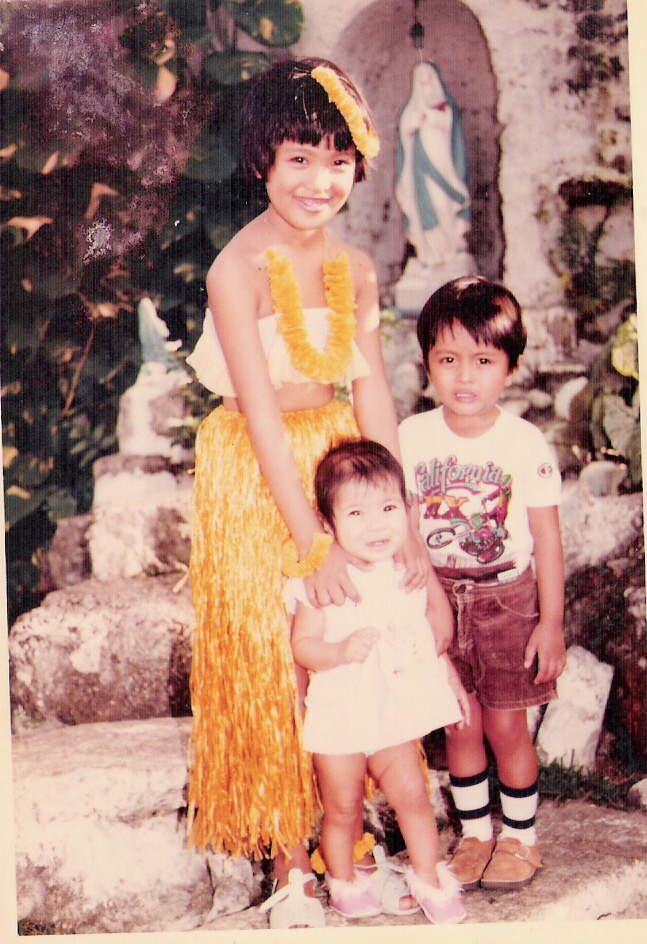

The Cost of Self-Neglect
As I grew older, the responsibilities only increased. My brain became wired to think of others first, to the point where I began to neglect my own needs. The pattern of selflessness that I admired in my father became a double-edged sword for me. I found myself lost, struggling to balance my sense of duty with the need for self-care.
When my dad died, I realized the profound waste of life his selflessness had become. He never gave himself a chance to live his own life. He dedicated every moment to taking care of us and working hard.
I cried at his wake, not only for his passing but for the life he never got to live. He never saw my life in Denmark, never tasted Belgian chocolates, or experienced buying them himself in Belgium. My dad was a clever man who loved to read. He knew about the statues in Copenhagen and, upon seeing my pictures, he would tell me everything about them, turning our conversations into impromptu history lessons. His vast knowledge and unfulfilled dreams added to my grief, as he never had the chance to explore the world he was so curious about.
Learning to Care for Myself
Growing up with a selfless father taught me the value of caring for others, but it also highlighted the importance of caring for myself. Balancing these two aspects of life is a continuous journey, one that requires conscious effort and self-awareness. By setting boundaries, practicing mindfulness, and seeking support, I am slowly learning to manage my life in a way that honors both my responsibilities and my own well-being. I strive to live a life that my father would be proud of, one where I take care of myself as well as others, ensuring that his sacrifice was not in vain.
The Brain’s Role in Self-Neglect
Our brains are incredibly adaptable, but they are also creatures of habit. When we spend years, even decades, focusing on the needs of others, our neural pathways become wired to prioritize others over ourselves. This is a phenomenon supported by scientific studies on brain plasticity, which show that our brains can change in response to repeated behaviors and experiences.
According to research by Dr. Donald Hebb, neurons that fire together wire together. This means that the more we engage in selfless behavior, the more our brains reinforce this pattern. Over time, these pathways become stronger, making it difficult to change our behavior even when we recognize the need to do so.
A study published in the journal “Nature Neuroscience” highlighted the brain’s ability to rewire itself in response to new experiences and learning. However, this process, known as neuroplasticity, requires consistent and sustained effort. Simply put, changing deeply ingrained habits is hard because it involves rewiring the brain.
Enjoying Responsibility: A Neurobiological Perspective
As I took on more responsibilities, my brain began to derive a sense of satisfaction from fulfilling these duties. This can be explained by the brain’s reward system, which releases dopamine, a neurotransmitter associated with pleasure and reward, when we accomplish tasks and help others. This reinforces the behavior, making it more likely for us to continue engaging in similar activities.
A study published in “The Journal of Neuroscience” found that altruistic behaviors activate the brain’s reward centers, similar to how we feel pleasure from eating or social interactions. This means that my brain was getting used to enjoying responsibility, reinforcing the habit of prioritizing others over myself.
The Science of Self-Care and Breaking Old Habits
Breaking the cycle of self-neglect involves creating new neural pathways. This can be achieved through practices that promote self-care and self-compassion. Mindfulness meditation, for example, has been shown to increase gray matter concentration in areas of the brain associated with self-awareness and emotional regulation, according to a study by Dr. Sara Lazar of Harvard Medical School.
Additionally, setting boundaries and engaging in activities that bring joy can help reinforce new, healthier patterns of behavior. Cognitive-behavioral therapy (CBT) is another effective tool, as it helps individuals identify and change negative thought patterns that contribute to self-neglect.

Conclusion
Understanding the brain’s role in self-neglect can provide insight into why it’s challenging to change deeply ingrained habits. By recognizing the need for self-care and taking deliberate steps to rewire our brains, we can honor both our responsibilities and our own well-being. This journey requires patience, persistence, and a willingness to prioritize ourselves, just as my father taught me to prioritize others. Through this balance, I aim to live a life that reflects the best of both worlds, ensuring that my father’s sacrifice was not in vain.
References:
- Liu, X., Ramirez, S., & Tonegawa, S. (2012). Inception of a false memory by optogenetic manipulation of a hippocampal memory engram. Nature Neuroscience, 15(2), 354-356.
- Lazar, S. W., Kerr, C. E., Wasserman, R. H., Gray, J. R., Greve, D. N., Treadway, M. T., … & Rauch, S. L. (2005). Meditation experience is associated with increased cortical thickness. NeuroReport, 16(17), 1893-1897.
- Moll, J., Krueger, F., Zahn, R., Pardini, M., de Oliveira-Souza, R., & Grafman, J. (2006). Human fronto–mesolimbic networks guide decisions about charitable donation. Proceedings of the National Academy of Sciences, 103(42), 15623-15628.
HOME Composed by Suzette Lyn (June 7, 2024) I I've walked a thousand miles, each step a story told From shadows of my past, to moments bright as gold I've seen the sun go down, more times than I can count But through the darkest nights I've always found a way Bridge The scars that I bear, they're the marks of my fight Through the battles I've faced, in the dead of the night CHORUS I’m telling my life A story of pain and hope Through the trials and the tears, I've learned to cope One day I'll find my rest, in a place called home Until then I'll sing a song And never be alone II There's a river of dreams, flowing deep in my soul It carries all my fears Lead me closer to the dawn In the silence in the whisper I find my strength again, I can hear the call A place called home Bridge The dreams that I chase In the light of the day Through the highs and the lows I will find my own way
